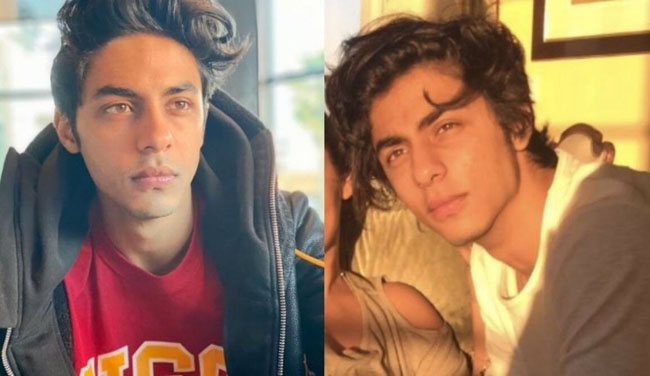
Mumbai, Oct 3: Bollywood actor Shah Rukh Khan's 23-year-old son Aryan Khan was arrested on Sunday following a raid at a party on a cruise ship off the coast of Mumbai last night by the Narcotics Control Bureau or NCB. He was among the eight people questioned after the raids.
Sources confirmed that Aryan Khan was booked under NDPS Act. He is expected to be produced in court around 7 pm.
Shah Rukh Khan was seen leaving his home and heading for his lawyer's office shortly before the arrest was confirmed.
"All eight, including Aryan Khan, are being questioned. Based on their statements further action will be taken," the anti-drugs agency had said earlier in a statement.
There were two women among the eight questioned. The eight people were Munmun Dhamecha, Nupur Sarika, Ismeet Singh, Mohak Jaswal, Vikrant Chhoker, Gomit Chopra, Aryan Khan, Arbaaz Merchant. Of the eight, three including Aryan Khan were taken for a medical test. He was also seen in a viral video on social media allegedly shot after the raids.
The NCB team boarded the Goa-bound ship disguised as passengers, sources said. According to officials, the party began after the ship left Mumbai and was at sea.
Drugs like Ecstasy, Cocaine, MD (Mephedrone) and Charas were recovered from the party on board the ship, the agency said.
During the operation, the suspects were searched and different drugs were recovered from them, which they had hidden in their clothes, undergarments and purses, an NCB official told news agency PTI.
The cruise company in a statement on Sunday said it had nothing to do with the incident.
"Cordelia Cruises is in no way, directly or indirectly, connected to this incident. Cordelia Cruises had chartered its ship for a private event to a Delhi-based event management company," Jurgen Bailom, Chief Executive Officer and President, Waterways Leisure Tourism Pvt Ltd said in the statement.
"We, at Cordelia Cruises, condemn all acts such as these and will strictly refrain from letting our ship out for similar events in the future. Nonetheless, Cordelia Cruises is extending our full support and cooperating with the authorities," it added.
The Congress, which is part of the ruling coalition in Maharashtra, on Sunday alleged that the raid and subsequent action was an attempt to divert attention from the "real issue" of the drugs seizure at Mundra port in Gujarat.
The Narcotics Control Bureau has stepped up action on anti-drugs cases since last year following the death of actor Sushant Singh Rajput and a wide-ranging investigation into alleged drug abuse.
The Directorate of Revenue Intelligence had also seized close to 3,000 kg of heroin at Gujarat's Mundra port early last month, and recovered around 37 kg of the narcotic drug, along with cocaine - or substance suspected to be the contraband items - from Delhi and Noida in Uttar Pradesh.






Comments
Add new comment